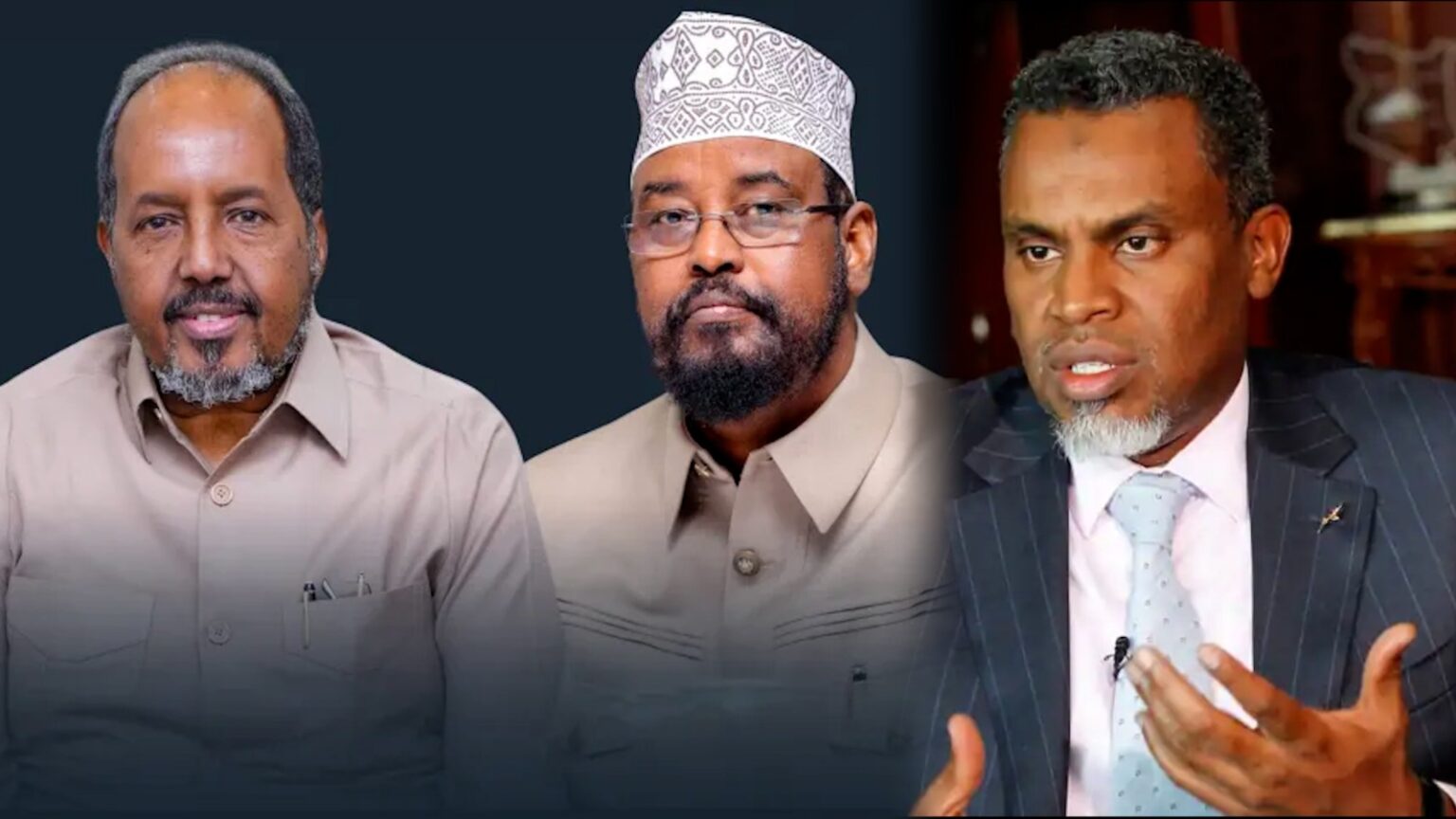Talks Between President Hassan Sheikh and Jubbaland Leader Ahmed Madobe Stall as Kenya Scrambles to Save Negotiations

Kismayo, Somalia — The high-stakes political dialogue between Somali President Hassan Sheikh Mohamud and Jubbaland President Ahmed Mohamed Islam (Ahmed Madobe) ended late Sunday night without an agreement, after both sides failed to bridge deep divisions over the controversial November 2024 Jubbaland elections, which the federal government has refused to recognize.
The talks, held at the Guest House in Kismayo, were tense and protracted. Sources close to the meeting said both leaders stood firmly by their earlier positions — with federal representatives arguing that Jubbaland’s election violated Somalia’s constitutional framework, while Jubbaland’s delegation insisted the vote was legitimate and reflected the will of its people.
In a bid to prevent the talks from collapsing, Kenya’s Director of National Intelligence, Noordin Haji, has been personally mediating between the two leaders, urging both sides to show restraint and flexibility. According to diplomatic sources, Haji held separate late-night meetings with President Hassan Sheikh and President Madobe, pushing for a “middle ground” compromise to keep the process alive.
The mediation efforts are part of a broader regional initiative led by Kenya, the United Arab Emirates, and Ethiopia, aimed at de-escalating the political standoff that has strained relations between Mogadishu and Kismayo in recent months.
Negotiations are expected to resume later today, with cautious optimism among observers that progress could still be made on contentious issues, including electoral legitimacy, security arrangements, and intergovernmental relations between Jubbaland and the federal government.
Diplomatic insiders say there are “promising signals” from both delegations, though the path to compromise remains fraught with political risk and mistrust.
Tensions between Villa Somalia and the Jubbaland administration have simmered since late 2024, when the federal government refused to recognize the regional elections that returned Ahmed Madobe to power for another term. The standoff has complicated national reconciliation efforts and delayed the implementation of key federal reforms, including the constitutional review and preparations for direct national elections.
A successful breakthrough in Kismayo could mark a turning point for Somalia’s fragile federal system, signaling renewed cooperation between Mogadishu and the regional states. However, failure to reach a deal may deepen political fragmentation, embolden regional defiance, and undermine national stability at a time when the country faces mounting security and humanitarian challenges.
For now, all eyes remain on Kismayo — where today’s talks could either rekindle Somalia’s federal unity or expose the widening cracks within it.
